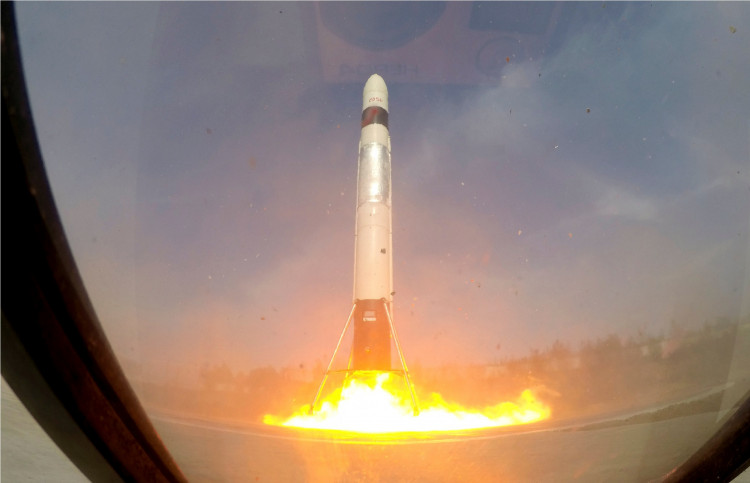China's LinkSpace, a start-up owned by the country's youngest space entrepreneur, launch a prototype reusable rocket called NewLine Baby, an 8.1 tall rocket that weighs 1.5 tonnes. It is considered as a step towards a new business model which is to send tiny, inexpensive satellites into orbit at affordable prices.
LinkSpace first used a Kevlar tether on its initial tests for the rocket. The rocket, however, successfully took off and landed last week for the second time without the need for the tether.
The company's chief executive, Hu Zhenyu and his engineers were delighted to see the rocket hovering 40 meters above the ground before it descended back to its concrete launch pad after 30 seconds.
LinkSpace is one of China's private rocket manufacturers which aims to exploit the demand for the so-called nanosatellites. The satellites usually weigh less than 10 kilograms and in some cases smaller than a shoebox. They, however, have less lifespan than regular satellites since they are expected to explode after a few years. Chinese entrepreneurs believe that China needs to lead in the development of nanosatellites.
According to Mr. Hu, for suborbital clients, their focus will be on scientific research and some commercial uses and after entering orbit, the near-term focus (of clients) will certainly be on satellites.
China plans to build a large constellation of commercial satellites that can offer services that range from high-speed internet for aircraft to tracking coal shipments. The entrepreneurs for the industry sees possible clients in universities that conduct experiments and in companies that seek to offer remote-sensing and communication services.
United States small-rocket companies are also developing their own nanosatellites. One of the biggest rocket making company in the United States, Rocket Lab, made 25 satellite launches in orbit.
Companies in China are behind the United States in terms of nanosatellite launches to the orbit. Two companies from the country, and space and OneSpace, failed during their launch which illustrates the struggle of start-up companies around the globe.
Marco Caceres, the analyst at United States aerospace consultancy Teal Group, said that if you're a small company and you can only build a very, very small rocket because that's all you have money for, then your profit margins are going to be narrower.
He added that if you can take that small rocket and make it reusable, and you can launch it once a week, four times a month, 50 times a year, then with more volume, your profit increases.





